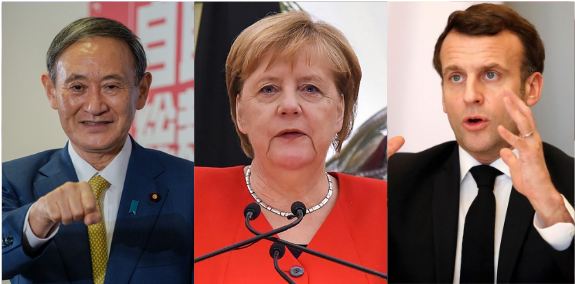The Indo-Pacific concept is becoming the strategic epicentre of global politics, and even the two main European powers- France and Germany are also getting actively involved in the region. Yet, Germany and France differ in their Indo-Pacific strategy. Paris mastered the Indo-Pacific concept much before Berlin. France understood the threats posed by China’s growing hegemony in the region, whereas Germany’s Indo-Pacific strategy is more of a reaction to the growing French influence in the region.
France’s Indo-Pacific vision is more akin to regional powers like India, Japan and Australia. Germany, however, seeks to downplay conflict with China and even tries to find the scope of limited cooperation with the Communist nation in areas like climate change. In this sense, Germany’s Indo-Pacific strategy is supposed to counter growing French influence. But now Berlin is facing a tough task, as Japan has come up with a loyalty test for German Chancellor Angela Merkel.
Japan and Germany held their first “2-plus-2” meeting between their respective Foreign and Defence Ministers on Tuesday. The meeting was crucial as Tokyo is a leading Indo-Pacific power, and Berlin cannot play a substantial role in the region without Japan’s cooperation.
Japan, therefore, ensured that it puts the Merkel administration in a fix over the growing Chinese threat. In fact, Japanese Foreign Minister Toshimitsu Motegi and Defence Minister Nobuo Kishi ensured that the meeting was more or less centred on China. Issues like the Chinese crackdown in Hong Kong and human rights abuses against the Uyghur minority in China-occupied Xinjiang came up for discussion between the two sides.
Toshimitsu Motegi went as far as a warning of increased Chinese military activity in the Indo-Pacific. He said, “Owing to unilateral efforts to change the status quo by force, we can no longer rely on the assumptions that have supported peace and stability in the international community.”
Germany, on its part, expressed the value of Japan-Germany relations in the Indo-Pacific. Yet, Japan ensured that things move beyond mere rhetoric and this is exactly where Tokyo came up with a loyalty test for Berlin.
Japan and Germany discussed conducting joint naval exercises when Germany sends a Navy frigate to the Indo-Pacific as soon as the upcoming summer season. The German Navy frigate is expected to make port in Japan on the crucial tour.
So, Japan has secured a rather unusual promise from Germany. Berlin has dispatched Naval vessels to the Indo-Pacific in the past, but it was almost always a mere sign of goodwill and there were no strategic implications. However, this time around, Tokyo has ensured that Germany gets overtly involved in security-related manoeuvres with China at the back of the mind.
By conducting a joint naval exercise with one of China’s main rivals in the Indo-Pacific, the Merkel administration would be compelled to make a departure from its Indo-Pacific strategy that otherwise seeks to downplay differences with Beijing. Japan has therefore managed to create a loyalty test that compels the Merkel administration to contribute towards a Free and Open Indo-Pacific, rather than competing with France for influence in the strategically crucial region.
